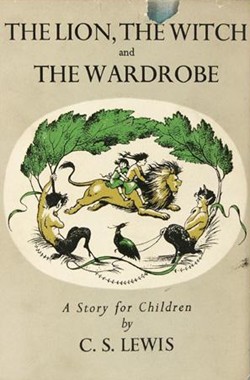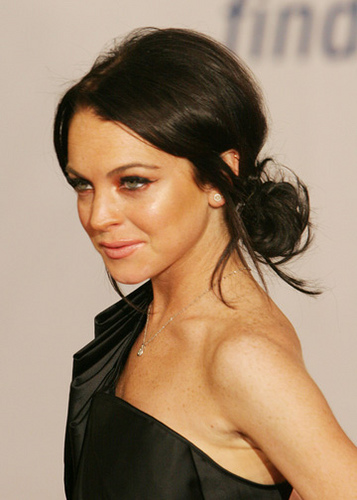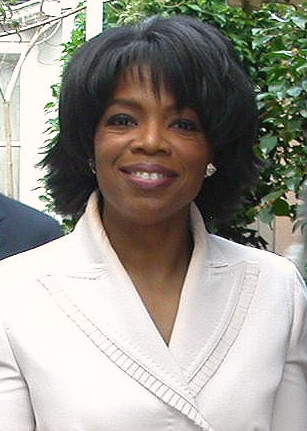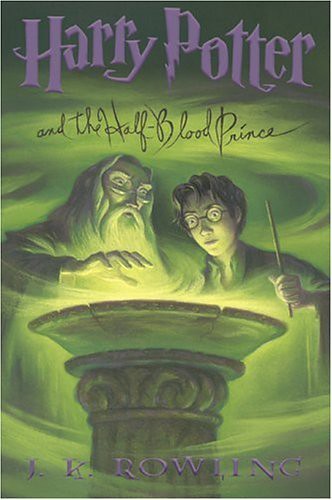Defining heroism is a difficult task, yet identifying hero relatively speaking is easier to do in a comparison. The two best examples of child book heroes and heroism are displayed by author C. S. Lewis' character Edmund in The Lion, The Witch and The Wardrobe, and David Almond's character Michael in Skellig. Both Michael and Edward undertake a series of events that challenge them to new heights. The standard definition of a hero suggests that a hero is the protagonist individual who is selfless, kind and noble. A child hero, in comparison, is a child character that develops slowly into their hero character as they undergo their life changing experience and growing pains. Taking a close look at these two childhood heroes will give us a better understanding of the question " Are heroes born or made ?, with a specialized focus on childhood fictional heroes that influenced and sparked the imagination of hundreds if not millions of children.


In The Lion, The Witch and The Wardrobe, Edmund Pevensie is a ten-year-old schoolboy and the second youngest sibling in the Pevensie family of four children. The story starts in the suburbs of Finchley, a northern district of London, England, during WWII, but the story takes play in the imaginary world of Narnia. Edmund, early on in the novel, falls prey to the evil spell of the White Witch- the false Queen of Narnia, who manipulates him using magical Turkish Delight. Tempting Edmund with the idea of power, the White Witch brings out his greed and selfishness. Unfortunately, Edmund like any other child falls victim to the White Witch's tricks. He temporally betrays his siblings to become Prince of Narnia and sole heir to the throne of Narnia. After betraying his siblings, Edmund has the distinguishing and redeeming quality of courage to admit his wrongs, and to redeem himself in the battle against the White Witch with his courageous strength and noble acts of self-sacrifice.
In the novel Skellig, Michael is a ten-year-old British schoolboy. Unlike Edmund, Michael's adventures are in the real world where he has to take care of a dying angel like creature by the name of Skellig. To make matters worse, Michael is also coping with the fear that his prematurely born sister named Joy-who might be dying due to preemi complications. What differentiates Michael from Edmund is that he has to struggle with the concept of life and death at a very young age of ten years old. In each of his encounters with Skellig and Joy, Michael comes closer to understanding the precious balance of The Life and Death Cycle. What sets Michael apart from childhood figures is his keen empathy for others, especially for people in distress. The significance of Michael's ability to mature and transform into this caring and understanding young adult at the age of ten-years-old is what makes him an extraordinary individual and child hero. When comparing Michael's maturity to Edmunds lack thereof early on in the novel, it becomes apparent that both through their experiences grow wiser and mature as they overcome their respective challenges of courage and maturity.
Don’t believe me check out the follow up post on Defining Moments.

 Batman is one of the worlds most famous and favored superheroes, but he is also once of the most unusual. Appearing in comics, television, and major motion pictures, Batman hides behind the identity of Bruce Wayne, a playboy billionaire and industrial tycoon. As a child, Wayne witnessed both his parents murdered in front of him and vowed to revenge their deaths by fighting crime. Undergoing a journey for both physical and mental excellence, Wayne transformed himself into the dark hooded and caped Batman. Batman's transformation into a hero is unique as it is relatively realistic and purely self-motivated.
Batman is one of the worlds most famous and favored superheroes, but he is also once of the most unusual. Appearing in comics, television, and major motion pictures, Batman hides behind the identity of Bruce Wayne, a playboy billionaire and industrial tycoon. As a child, Wayne witnessed both his parents murdered in front of him and vowed to revenge their deaths by fighting crime. Undergoing a journey for both physical and mental excellence, Wayne transformed himself into the dark hooded and caped Batman. Batman's transformation into a hero is unique as it is relatively realistic and purely self-motivated. As quoted in the 2005 film “Batman Begins,”: "if you make yourself more then just a man, if you devote yourself to an ideal then you become something else entirely."
As quoted in the 2005 film “Batman Begins,”: "if you make yourself more then just a man, if you devote yourself to an ideal then you become something else entirely." While Batman is one of the world's most famous superheroes, his archenemy the Joker is one of the world's most famous villains. Known for his iconic appearance, the Joker resembles a terrifying clown with white skin, green hair, and red lips. His face is also scared into a freakish smile, and is often a trait he inflicts on his victims. The Batman comic book explains the Joker got his appearance after falling into chemical waste. Other versions of Batman, such as the movie, "The Dark Knight", depict the Joker having no recorded name, fingerprints, address, or any other known source of origin.Regardless of his background, the Joker is universally recognizable for his characterization as an extremely intelligent but wildly insane psychopath with a very sick sense of humor. The Joker thrives on violently twisted pranks and gimmicks and routinely involves his victims in sadistic games meant to physically and mentally agonize them. The Joker is considered a superior criminal to others as his crimes are driven by complex motivations. While most crooks are motivated by simplistic desires of money and power, the Joker is a different breed of criminal. As articulated by Batman's butler and sidekick, Alfred, in the movie "The Dark Knight", "some men aren't looking for anything logical like money, they can't be bought, bullied, reasoned, or negotiated with, some men just want to watch the world burn."A self-proclaimed agent of chaos, the Joker is the ultimate terrorist, as his crimes are not meant to achieve material gain but rather to insight fear and terror.
While Batman is one of the world's most famous superheroes, his archenemy the Joker is one of the world's most famous villains. Known for his iconic appearance, the Joker resembles a terrifying clown with white skin, green hair, and red lips. His face is also scared into a freakish smile, and is often a trait he inflicts on his victims. The Batman comic book explains the Joker got his appearance after falling into chemical waste. Other versions of Batman, such as the movie, "The Dark Knight", depict the Joker having no recorded name, fingerprints, address, or any other known source of origin.Regardless of his background, the Joker is universally recognizable for his characterization as an extremely intelligent but wildly insane psychopath with a very sick sense of humor. The Joker thrives on violently twisted pranks and gimmicks and routinely involves his victims in sadistic games meant to physically and mentally agonize them. The Joker is considered a superior criminal to others as his crimes are driven by complex motivations. While most crooks are motivated by simplistic desires of money and power, the Joker is a different breed of criminal. As articulated by Batman's butler and sidekick, Alfred, in the movie "The Dark Knight", "some men aren't looking for anything logical like money, they can't be bought, bullied, reasoned, or negotiated with, some men just want to watch the world burn."A self-proclaimed agent of chaos, the Joker is the ultimate terrorist, as his crimes are not meant to achieve material gain but rather to insight fear and terror.  For example, in the Dark Knight the Joker threatens to blow up a hospital if a named individual is not murdered within an hour. Gotham is immediately thrown into a frenzied panic. Regular citizens concerned for their loved ones in hospitals begin making assassination attempts on the innocent victims life as they are driven to desperation by fear. Such behavior is exactly what the Joker wishes to achieve as he thrives on individuals turning to madness and violence when faced with incredible adversity. The Joker's power comes from his ability to tap into the darkest corners of the human psyche. His crimes are meant to break the spirit and hope of individual's leading them to believe there is no control in the world, no hope, and no point to ones actions. There is no right and wrong simply chaos. There is nothing more terrifying to the human mind then a world without reason.In the absence of reason and order people succumb to fear and in a world driven by fear there is only anarchy. As a figure of insanity it is ironic that people are drawn to the Joker because of the truth and logic, which underlines his actions. In the face of the constant adversity and tragedy that is human life, everyone experiences a point where they wonder why they try, why they don't just give up or give into madness and corruption. As a villain the Joker thrives on this loss of faith. Individuals will always be faced with the choice between right and wrong when encountering life's obstacles, there will always be those who choose to be heroes and those who give into villainy.Below is a clip from “The Dark Knight” in which the Joker threatens to blow up a hospital causing chaos to ensue.http://www.youtube.com/watch?v=ZRG1tWQN6e8&feature=related
For example, in the Dark Knight the Joker threatens to blow up a hospital if a named individual is not murdered within an hour. Gotham is immediately thrown into a frenzied panic. Regular citizens concerned for their loved ones in hospitals begin making assassination attempts on the innocent victims life as they are driven to desperation by fear. Such behavior is exactly what the Joker wishes to achieve as he thrives on individuals turning to madness and violence when faced with incredible adversity. The Joker's power comes from his ability to tap into the darkest corners of the human psyche. His crimes are meant to break the spirit and hope of individual's leading them to believe there is no control in the world, no hope, and no point to ones actions. There is no right and wrong simply chaos. There is nothing more terrifying to the human mind then a world without reason.In the absence of reason and order people succumb to fear and in a world driven by fear there is only anarchy. As a figure of insanity it is ironic that people are drawn to the Joker because of the truth and logic, which underlines his actions. In the face of the constant adversity and tragedy that is human life, everyone experiences a point where they wonder why they try, why they don't just give up or give into madness and corruption. As a villain the Joker thrives on this loss of faith. Individuals will always be faced with the choice between right and wrong when encountering life's obstacles, there will always be those who choose to be heroes and those who give into villainy.Below is a clip from “The Dark Knight” in which the Joker threatens to blow up a hospital causing chaos to ensue.http://www.youtube.com/watch?v=ZRG1tWQN6e8&feature=related
 Perhaps one of the most inspirational of all hero stories is the tale of the underdog. We identify so much with the underdog because we can see ourselves in them. Most people are not born with extraordinary abilities. For that reason, when an average person, such as ourselves achieves extraordinary things with limited gifts we are inspired. An individual who definitely falls under this category is Daniel Ruettiger, who is more commonly known as Rudy. Rudy grew up in a working class family in Illinois. Even, though Rudy was a poor student. He dreamed of attending the University of Notre Dame. Not only did he dream of that but he also dreamed of playing football for the fighting Irish. Even though he was a leader and standout on his high school football team, his stature, five-foot six and one-hundred sixty-eight pounds, Rudy was not a prototypical college football player. Despite the myriad of people who told him these dreams would never come to fruition, Rudy held onto them tightly.After a stint in the United States Navy and work at a power plant, Rudy finally applied to admission to Notre Dame. His application was denied, although he was accepted to Holy Cross College, which was in the same location as Notre Dame. Instead of being discouraged by Notre Dame's rejection, Rudy seized on the opportunity given to him by Holy Cross College and started working toward his education. During his time at Holy Cross, Rudy was diagnosed with dyslexia. This learned disorder, which impairs a person's ability to read, is thought to be the reason that Rudy struggled so much academically in high school. After spending two years at Holy Cross College, with three rejections from Notre Dame in the meantime, Rudy was finally accepted to Notre Dame at the age of 26.
Perhaps one of the most inspirational of all hero stories is the tale of the underdog. We identify so much with the underdog because we can see ourselves in them. Most people are not born with extraordinary abilities. For that reason, when an average person, such as ourselves achieves extraordinary things with limited gifts we are inspired. An individual who definitely falls under this category is Daniel Ruettiger, who is more commonly known as Rudy. Rudy grew up in a working class family in Illinois. Even, though Rudy was a poor student. He dreamed of attending the University of Notre Dame. Not only did he dream of that but he also dreamed of playing football for the fighting Irish. Even though he was a leader and standout on his high school football team, his stature, five-foot six and one-hundred sixty-eight pounds, Rudy was not a prototypical college football player. Despite the myriad of people who told him these dreams would never come to fruition, Rudy held onto them tightly.After a stint in the United States Navy and work at a power plant, Rudy finally applied to admission to Notre Dame. His application was denied, although he was accepted to Holy Cross College, which was in the same location as Notre Dame. Instead of being discouraged by Notre Dame's rejection, Rudy seized on the opportunity given to him by Holy Cross College and started working toward his education. During his time at Holy Cross, Rudy was diagnosed with dyslexia. This learned disorder, which impairs a person's ability to read, is thought to be the reason that Rudy struggled so much academically in high school. After spending two years at Holy Cross College, with three rejections from Notre Dame in the meantime, Rudy was finally accepted to Notre Dame at the age of 26. While a hero is usually an individual person, there are often instances when a group of people rises up together to demonstrate a collective act of heroism. This idea certainly came to fruition after the Japanese attached American troops at Pearl Harbor. The generation of young people during that time period, raging from younger than 18 to older than 30, have since been labeled by many as "The Greatest Generation."
While a hero is usually an individual person, there are often instances when a group of people rises up together to demonstrate a collective act of heroism. This idea certainly came to fruition after the Japanese attached American troops at Pearl Harbor. The generation of young people during that time period, raging from younger than 18 to older than 30, have since been labeled by many as "The Greatest Generation."  I'm fairly certain that most everyone has read Harry Potter, but if you haven't you should probably stop reading. The books are just too good to ruin! Even if you've been watching the movies – stop now before I give away the ending. I'm not kidding.
I'm fairly certain that most everyone has read Harry Potter, but if you haven't you should probably stop reading. The books are just too good to ruin! Even if you've been watching the movies – stop now before I give away the ending. I'm not kidding.  But this wasn't the only revelation made in the moments just prior to his death. J.K. Rowling still had an ace in the hole. Snape had been in love with Lily Evans Potter for his entire life. This causes us to reevaluate all of Snape's past actions in this new light. Snape's hatred towards Harry may have been a misguided self-hatred. Harry was the physical embodiment of Snape's past mistake that lead to the death of the woman he had always loved. It is also revealed that this is the reason that Snape had kept Harry safe throughout the series, even though his actions were mostly behind the scenes. The hints had been carefully plotted throughout the series, but never pieced together until this crucial moment. Snape's love for Lily is what lead him to switch sides and to risk his life time and time again to help Harry triumph over Voldemort.
But this wasn't the only revelation made in the moments just prior to his death. J.K. Rowling still had an ace in the hole. Snape had been in love with Lily Evans Potter for his entire life. This causes us to reevaluate all of Snape's past actions in this new light. Snape's hatred towards Harry may have been a misguided self-hatred. Harry was the physical embodiment of Snape's past mistake that lead to the death of the woman he had always loved. It is also revealed that this is the reason that Snape had kept Harry safe throughout the series, even though his actions were mostly behind the scenes. The hints had been carefully plotted throughout the series, but never pieced together until this crucial moment. Snape's love for Lily is what lead him to switch sides and to risk his life time and time again to help Harry triumph over Voldemort.